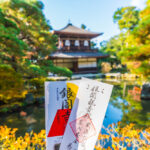Setting Up and Using eSIM
Let’s start by explaining how to set up and use eSIM. Since eSIM doesn’t require a physical SIM card, it’s incredibly convenient for travelers. First, make sure you have an eSIM-compatible smartphone. The latest iPhones and some Android devices are compatible. Next, purchase an eSIM plan from a supported carrier’s website. In Japan, NTT Docomo, SoftBank, and Rakuten Mobile offer eSIM services. After purchasing, scan the QR code provided by the carrier with your smartphone to download the profile, and the setup will be completed within minutes. Once set up, you’ll be able to use mobile data in Japan immediately, ensuring smooth internet access throughout your trip. This preparation allows you to access real-time traffic information as you travel.

Recommended Transportation Apps in Japan
There are many useful transportation apps in Japan. For example, Google Maps is perfect for basic navigation and public transit route searches. Additionally, apps like NAVITIME and Japan Transit Planner provide train and bus schedules, transfer information, and optimal route searches. These apps also support real-time traffic information, allowing you to quickly check for delays or service interruptions. With apps like Suica or PASMO, you can easily pay for transportation with electronic money features. Downloading these apps and using eSIM to stay connected will make your travel around Japan even more convenient.

Utilizing Real-Time Traffic Information
Utilizing real-time traffic information is key to smooth travel. With eSIM, you can stay connected to the internet at all times, allowing you to receive the latest updates from transportation apps. For example, you can check real-time information on train delays, service statuses, or bus arrival times. This enables you to quickly adapt your plans if changes are needed. Moreover, apps like Google Maps and NAVITIME can suggest the best routes to avoid congestion, helping you use your time efficiently and reach your destination without stress.

Tips for Avoiding Crowds
One of the best tips for avoiding crowds is to steer clear of peak times. In major Japanese cities, morning rush hours (7 AM to 9 AM) and evening rush hours (5 PM to 7 PM) are particularly crowded. By traveling outside these times, you can enjoy a more comfortable journey. Additionally, using apps that provide real-time crowd information is important. Google Maps and NAVITIME offer real-time congestion updates, which can help you choose less crowded routes. Another effective strategy is to board at the starting or ending stations of a line to secure a seat on trains or buses, allowing for a more relaxed ride.

Dealing with Issues During Travel
Knowing how to deal with issues during travel can give you peace of mind. If your train or bus is delayed or canceled, quickly searching for an alternative route is crucial. NAVITIME and Japan Transit Planner apps can suggest multiple routes, helping you respond swiftly. If you encounter problems with your internet connection, try restarting your smartphone or reinstalling the eSIM profile, which often resolves the issue. Contacting your carrier’s support center for professional assistance is also a good option. Bookmarking the carrier’s support page before your trip allows you to respond quickly in emergencies. By taking these precautions, you can calmly handle unexpected issues and enjoy your trip with confidence.

eSIM for a Smooth Travel Experience
Finally, take full advantage of eSIM to support a smooth travel experience. By using eSIM, you can stay connected to the internet at all times and receive real-time traffic information. This minimizes travel disruptions and helps you reach your destinations efficiently. Additionally, eSIM allows you to flexibly switch between different carrier plans, ensuring you always have the best possible connectivity. This reduces stress during travel and provides a more comfortable experience. Make the most of eSIM to fully utilize Japan’s transportation system and enjoy a smooth and enjoyable trip.





